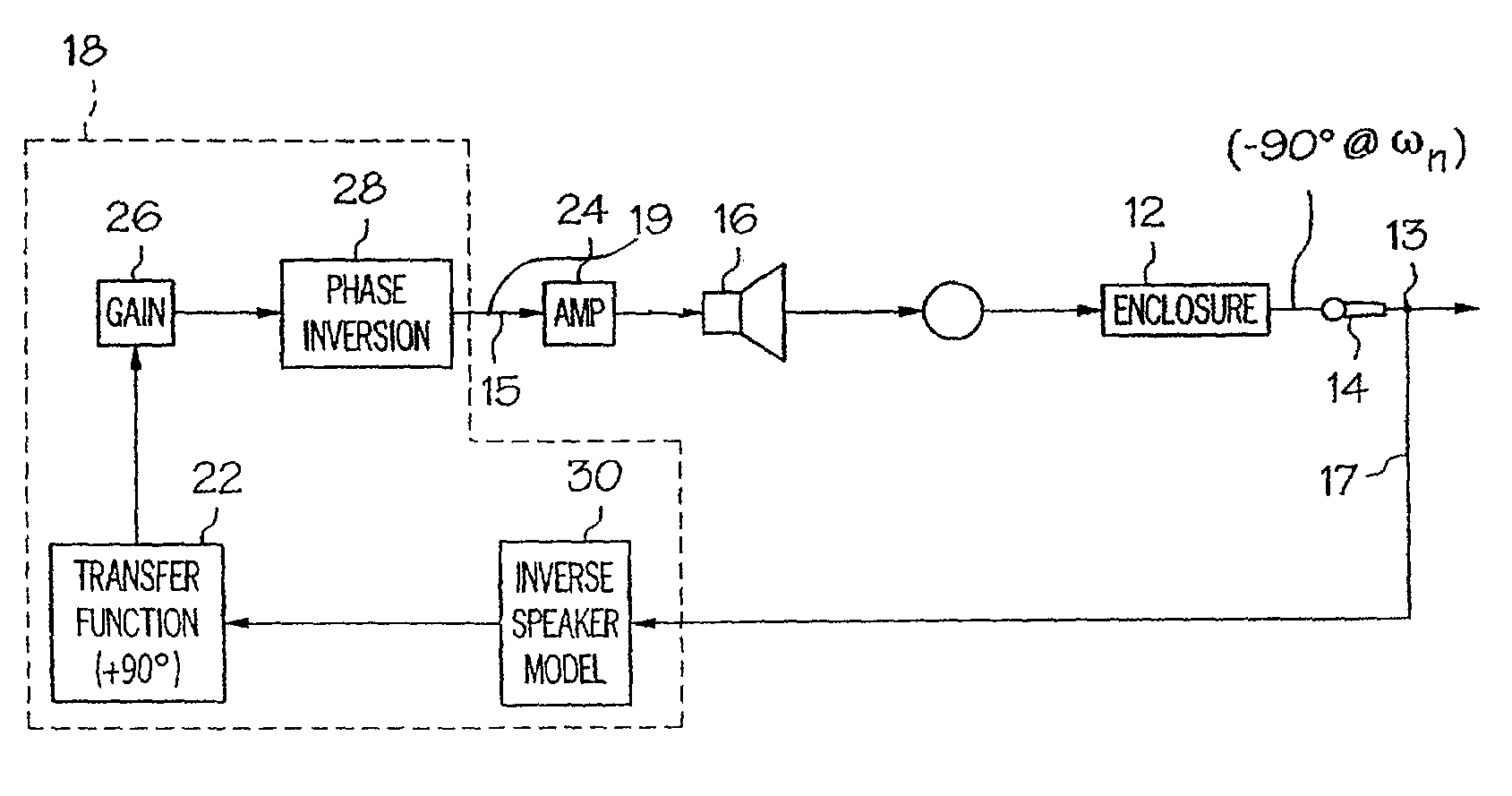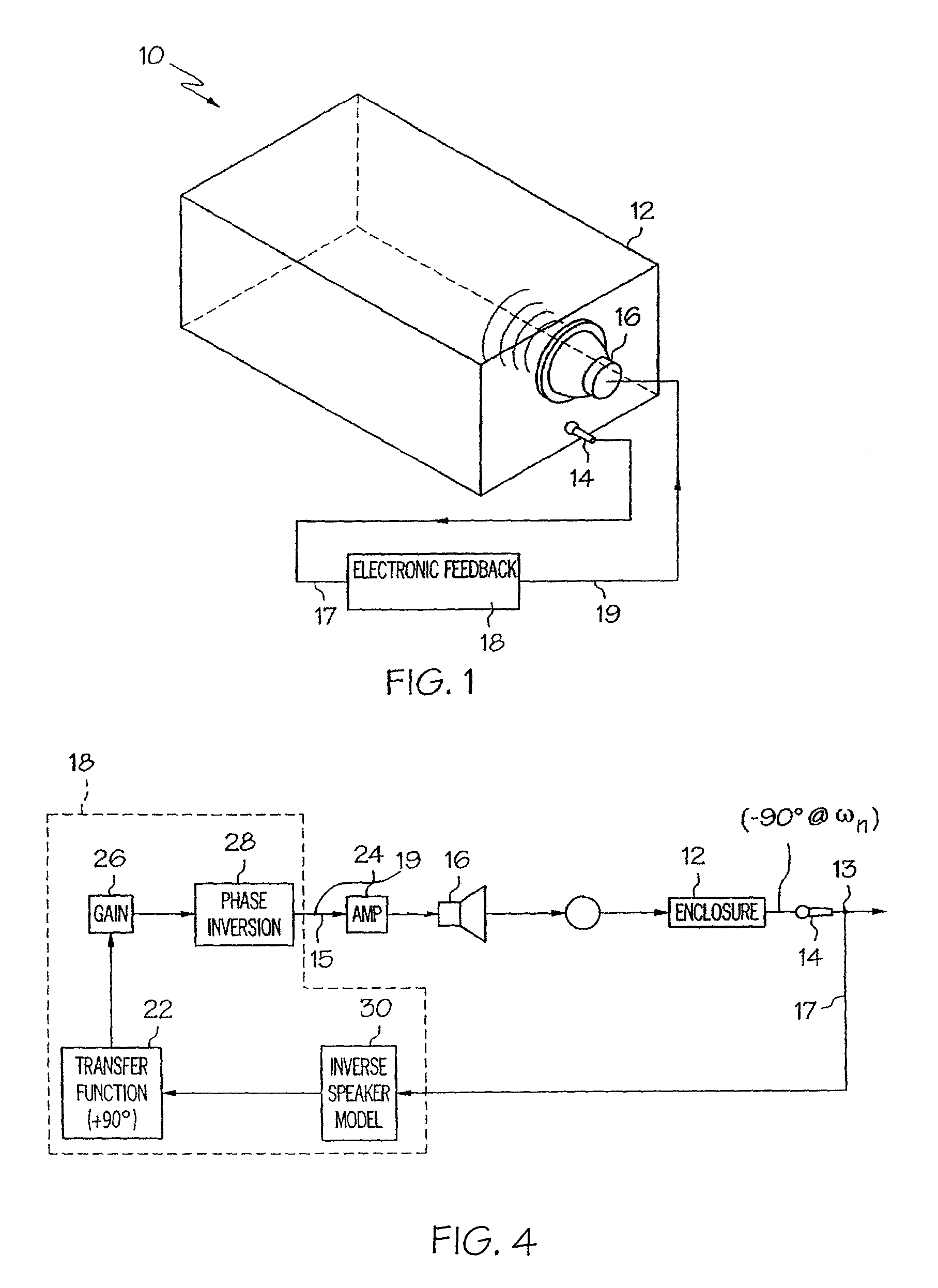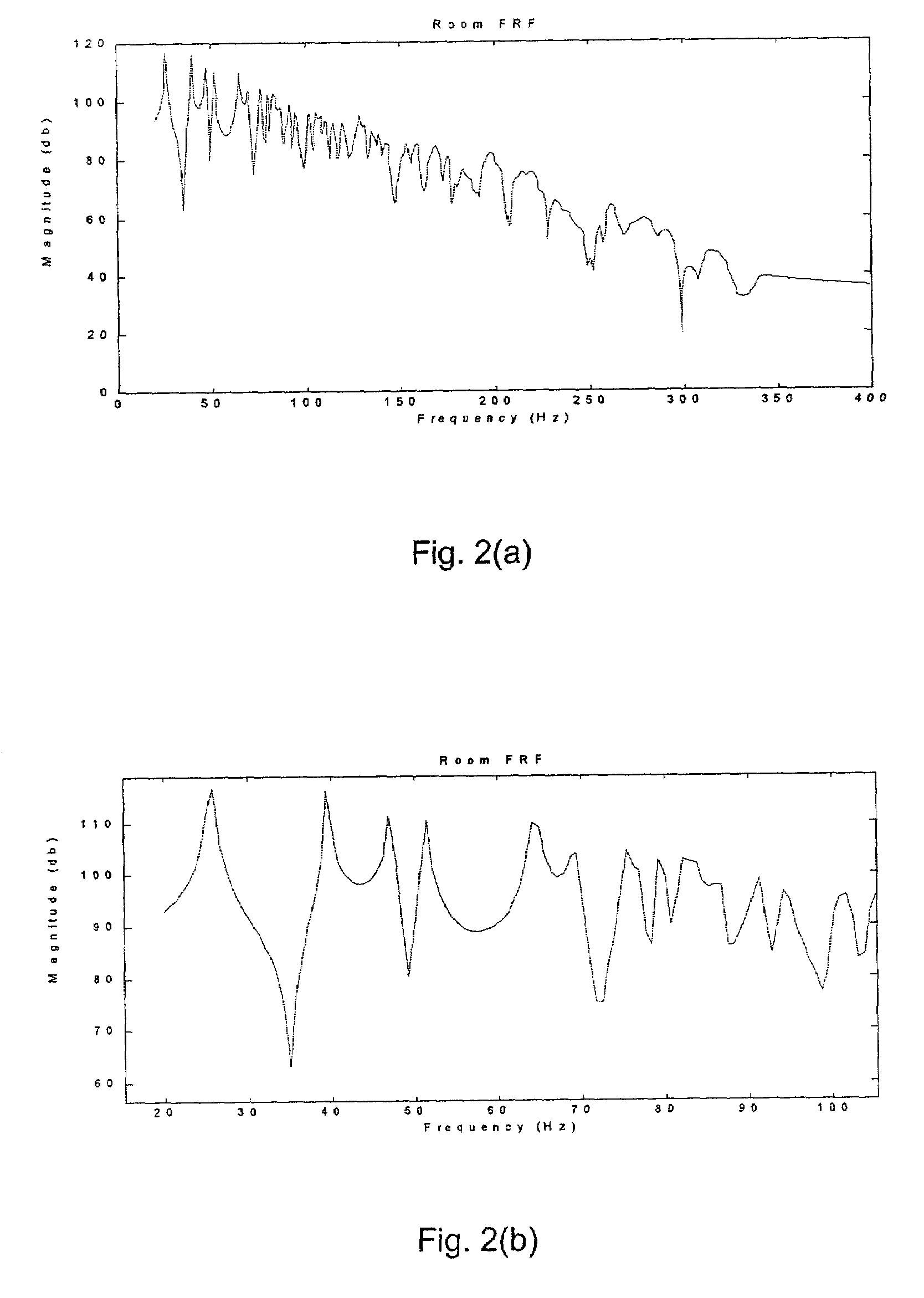Active feedback-controlled bass coloration abatement
a feedback control and bass technology, applied in the field of active feedback control bass coloration abatement, can solve the problems of muddy or unintelligible sound, too little can make it sound dry or dead, and reinforcement and lingering of certain tones in music, so as to reduce the low-frequency coloration of sound
- Summary
- Abstract
- Description
- Claims
- Application Information
AI Technical Summary
Benefits of technology
Problems solved by technology
Method used
Image
Examples
Embodiment Construction
[0031]Referring initially to FIG. 1, a system for actively damping the low-frequency coloration of sound 10 according to the present invention is illustrated in general schematic form. The system 10 employs a feedback control scheme for reducing the boominess of sound at frequencies corresponding to offending (coloring) standing waves within a listening room. The system comprises a listening room 12, an acoustic wave sensor 14, an acoustic wave actuator 16, and an electronic feedback controller 18. As will be appreciated by those skilled in the art of acoustics, the listening room 12 defines at least one mode of low-frequency coloration. For the purposes of defining and describing the present invention, it should be understood that a listening room typically comprises any completely bounded three dimensional space, but may also comprise a three dimensional space including some relatively insubstantial unbounded portions, which is used for listening to music and / or other sounds, or f...
PUM
 Login to View More
Login to View More Abstract
Description
Claims
Application Information
 Login to View More
Login to View More - R&D
- Intellectual Property
- Life Sciences
- Materials
- Tech Scout
- Unparalleled Data Quality
- Higher Quality Content
- 60% Fewer Hallucinations
Browse by: Latest US Patents, China's latest patents, Technical Efficacy Thesaurus, Application Domain, Technology Topic, Popular Technical Reports.
© 2025 PatSnap. All rights reserved.Legal|Privacy policy|Modern Slavery Act Transparency Statement|Sitemap|About US| Contact US: help@patsnap.com



